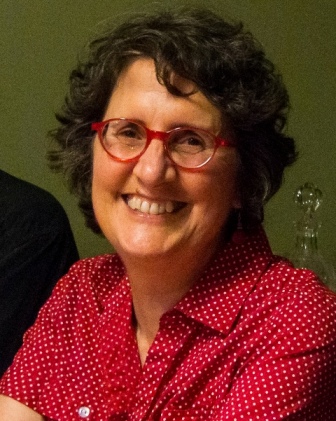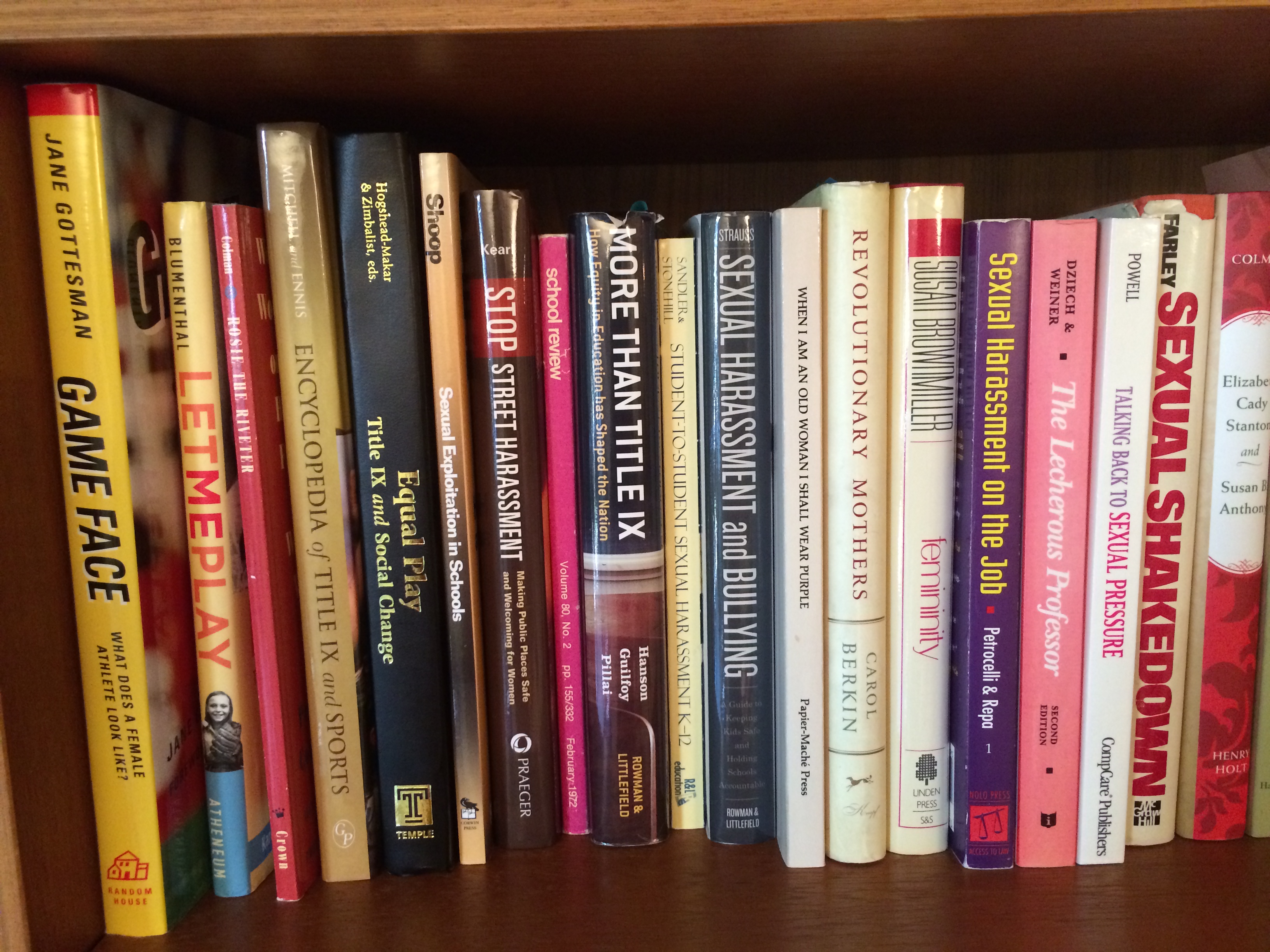Nameless sisterhood surrounds Title IX
 If you’ve ever felt that you’re part of a nameless sisterhood, take a moment to appreciate Arvonne Fraser.
If you’ve ever felt that you’re part of a nameless sisterhood, take a moment to appreciate Arvonne Fraser.
As smart as they come, energetic, socially astute and politically savvy, Fraser was a doer and an organizer. She got things done. But she came out of a much more sexist era than today. Fraser blossomed in the feminist resurgence of the 1970s to become a strong organizer for women’s causes, including Title IX. Had she been born closer to today, Fraser likely would have been a Congresswoman or governor instead of the de facto campaign manager for her politician husband.
Arvonne Fraser died last week at the age of 92. The life she lived reminds us that when we push to open closed doors, we never know where they might lead. Sometimes we can’t even see what things are like around us until we get through that door and compare our new surroundings with where we were before.
Fraser grew up a “tomboy” on a Minnesota farm during the Depression. In seventh grade she announced to her friends that she was going to have five children — all boys, because men had more fun. Eventually she did bear five children (girls and boys) in her second marriage. Years later, when a United Nations Commission appointed her as an advisor on the status of women, a press release noted not only her extensive knowledge of U.S. women’s organizations but “her long-term interest in population control,” a description that amused some of her friends.

(From She’s No Lady: Politics, Family, and International Feminism, Nodin Press 2007)
Dreams of attending a women’s college were beyond her family’s financial reach. On her first job in an airline factory at age 17, she fended off a man who groped her. “The term sexual harassment hadn’t been invented yet but I, like most women, encountered it,” though they didn’t talk about it, she wrote in her personal and political memoir, She’s No Lady.
Fraser found a way to go to college and got involved with Minnesota Democratic politics. She helped her second husband, Donald Fraser, get elected to office and eventually to Congress. She was able to pursue her unpaid job in his office by hiring household help — a black woman named Rosetta McDonald. Fraser’s seven-year-old daughter Annie stomped up to her mother one afternoon, distraught from learning that McDonald didn’t know how to read. She’d had to work in the fields growing up, and couldn’t go to school.
By the early 1960s Fraser recognized herself in the “problem that had no name” described in Betty Friedan’s book The Feminine Mystique. A generation of middle-class women was restless, searching for identities beyond homemakers, mothers, and helpmates to their husbands. She went to one meeting of the Washington, D.C. chapter of a new group — the National Organization for Women (NOW) — but felt the women there were politically naive. The more formal Woman’s National Democratic Club featured speakers but they were all white men. Her son Tom bought her a subscription to the tiny feminist newspaper Off Our Backs, where she read about women’s consciousness-raising groups exploring liberation from their subordinate status in society.
Fraser found a mainstream middle ground. She and a friend organized an informal brown-bag luncheon group mainly for wives of political officials, diplomats, or journalists, never admitting even to themselves that they were creating a support group just like the “women’s libbers” were doing. More than 20 women showed up at Fraser’s home for the first meeting in 1969.
One cardinal rule for their monthly meetings: Don’t introduce yourself in relation to a man, but by what you’re doing or thinking or want to talk about. At the end of the first meeting one woman told Fraser, “This is the first time in my 20 years in Washington that anybody has ever asked me who I am.” Reporters who caught wind of the meetings asked for the names of attendees and their husbands.
Instead, Fraser’s group dubbed itself The Nameless Sisterhood.
That same year, Bernice Sandler began filing complaints of sex discrimination against hundreds of colleges and universities with help from another relatively new organization, the Women’s Equity Action League (WEAL). Midwestern women created WEAL to focus on discrimination in education and employment separate from controversies around abortion and lesbian rights.
Fraser saw news coverage of Sandler’s action and invited her to a Nameless Sisterhood meeting. Many Sisterhood members joined WEAL. Within a year Fraser founded the Washington, D.C. chapter of WEAL, became its national vice-president, and opened a WEAL legislative office. Soon she became its national president. “I didn’t realize that organizing the Washington WEAL chapter was the start of my new life,” she wrote in her memoir.
Fraser helped WEAL develop its lobbying chops and build alliances with established women’s organizations to influence laws, policies, and political appointments. Historian Sara M. Evans later labeled them the “legalists” in the snowballing women’s movement of the 1970s.
That initial informal network of perhaps 27 or so women representing various groups had an impact beyond their numbers, helping pass and defend many bills for women’s rights in the heady days before more conservative opposition organized. In late 1970, as Sandler (now on Rep. Edith Green’s committee staff) distributed printed copies of the first Congressional hearings on sex discrimination in higher education, she sent one copy to each Senator and two to each Representative but 50 copies to Rep. Don Fraser’s office, where Arvonne could redistribute them most effectively.
In September 1971 Rep. Green’s version of Title IX worked its way through the House. The Ford Foundation paid Fraser (now WEAL president) and Sandler (now director of the Project on the Status and Education of Women for the Association of American Colleges) to conduct the first educational seminar on sex discrimination for all staff members of House and Senate committees that deal with education and for the staff of Congresspeople who sit on those committees. Unlike similar seminars on other topics, “To this one they have invited spouses also,” Sandler noted.
Arvonne got Rep. Don Fraser to insert into the Congressional record an article by Sandler about sex discrimination in education in May 1972, as the final version of Title IX was being hashed out between the House and Senate.
Sandler sent Fraser a note in October 1974 praising her article published in The Sportswoman. No one had anticipated Title IX’s overhaul of school athletics and the intense opposition it sparked. Decades later over a dinner, the two “laughed over how worried and scared we were in those early days, never anticipating that in 30 years women would be half the students in medicine and law and that American young women would be winning Olympic medals in sports. This time the theory of unintended consequences worked in women’s favor,” Fraser said in her memoir.
The informal coalition of women’s groups solidified into the National Coalition for Women and Girls in Education. They helped Rep. Patsy Mink draft, pass, and promote the Women’s Educational Equity Act (WEEA) to fund projects to implement Title IX in elementary and secondary schools. They got Sen. Walter Mondale to do the same on the Senate side. Fraser helmed WEAL but also devoted her prodigious energy to many political campaigns and projects.
When Carter and Mondale were elected to the White House in 1977, they appointed Arvonne Fraser coordinator of the Office of Women in Development for the U.S. Agency for International Development. She turned her passions to international girls’ and women’s rights. Fraser agreed to a “going away” party in D.C. only on the condition that it be a benefit party. She devoted herself to girls’ and women’s issues both internationally and locally in numerous capacities even after the Reagan Administration swept through Washington and sent her back to Minnesota.
Feminism and the laws and policies that Fraser helped install changed U.S. society dramatically over the decades. She took hope from the changes and chafed at how much sexism still lingers. “As with any revolution, what follows is the hard part — changing the culture,” she said at her 90th birthday celebration in 2015.
“I would like to think that while the twentieth-century was about securing rights, the twenty-first century will be one in which we emphasize responsibility,” Fraser wrote in her memoir. Her old friend Garrison Keillor, who went on to radio fame as the host of Prairie Home Companion, jokingly called her Sister Arvonne of Our Lady of Perpetual Responsibility Church and wrote the introduction to her 2007 memoir.
Responsibility caught up with Keillor in late 2017 when Minnesota Public Radio fired him for sexual harassment based on complaints stretching back at least two decades. The feminist movement and its tools — including Title IX — plus movements against sexual violence led largely by women of color over the decades have empowered women today to challenge sexual harassment more than ever before.
It may not be exactly what Fraser envisioned on her journey, but she helped open this door and many others.
 Update Aug. 24, 2018: Fraser’s family will hold a public memorial for her on Aug. 30 from 5:30-8:30 p.m. at Nicollet Island Pavilion, 40 Power St., Minneapolis, Minn. True to Arvonne’s spirit, they say in the memorial announcement, “If you want to honor Arvonne, please don’t send flowers or cards. Instead, go out and organize for a cause, donate to and volunteer for candidates, read the news and talk to your family, friends, neighbors and elected officials about important issues.”
Update Aug. 24, 2018: Fraser’s family will hold a public memorial for her on Aug. 30 from 5:30-8:30 p.m. at Nicollet Island Pavilion, 40 Power St., Minneapolis, Minn. True to Arvonne’s spirit, they say in the memorial announcement, “If you want to honor Arvonne, please don’t send flowers or cards. Instead, go out and organize for a cause, donate to and volunteer for candidates, read the news and talk to your family, friends, neighbors and elected officials about important issues.”











Great tribute to AF. Thank you Sherry.
What a privilege to have met Arvonne Fraser when I worked with Bernice Sandler and the PSEW team in D.C. Such articulate, dynamic women. Thank you, Sherry, for this fine tribute.